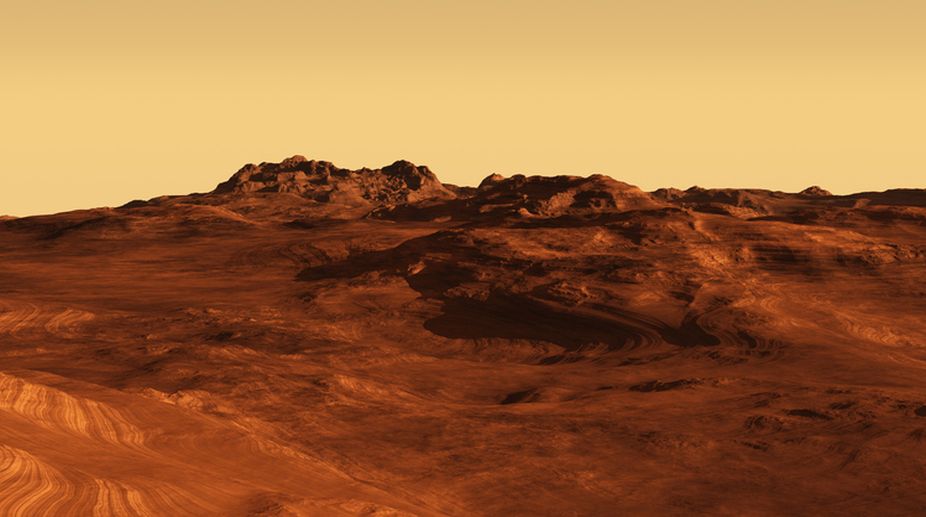Isro Mars Orbiter Chief ambitious about Mission Venus
The first ever venture into Venus is part of the country's space exploration, claimed the topmost ISRO scientists here on Wednesday.

(Photo: Getty Images)
Early Mars was warmed intermittently by a powerful greenhouse effect caused by methane gas, researchers have revealed.
The team from Harvard University's John A. Paulson School of Engineering and Applied Science (SEAS) found that interactions between methane, carbon dioxide and hydrogen in the early Martian atmosphere may have created warm periods when the planet could support liquid water on the surface.
Advertisement
In a paper published in Geophysical Research Letters, first author Robin Wordsworth wrote that if humans understand how early Mars operated, it could tell something about the potential for finding life on other planets outside the solar system.
Advertisement
Four billion years ago, the Sun was about 30 per cent fainter than today and significantly less solar radiation reached the Martian surface, the paper said, adding that the scant radiation that did reach the planet was trapped by the atmosphere, resulting in warm, wet periods.
As carbon dioxide makes up 95 per cent of today's Martian atmosphere, it alone does not account for Mars' early temperatures.
"You can do climate calculations where you add carbon dioxide and build up to hundreds of times the present day atmospheric pressure on Mars and you still never get to temperatures that are even close to the melting point," said Wordsworth.
Wordsworth and his collaborators looked to these long-lost gases — known as reducing gases — and found that billions of years ago geological processes could have released significantly more methane into the atmosphere.
This methane would have been slowly converted to hydrogen and other gases, in a process similar to that occurring today on Saturn's moon, Titan, the research found.
Wordsworth and his team experimented to see what happens when methane, hydrogen and carbon dioxide collide and how they interact with photons. The team found that this combination resulted in very strong absorption of radiation.
"We discovered that methane and hydrogen and their interaction with carbon dioxide, were much better at warming early Mars than had previously been believed," Wordsworth said.
Advertisement